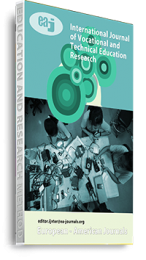Vocational school (VS) aims to prepare students to work in industries or to create their own jobs. Therefore, it is important for VS to prepare students to have better competencies needed by industries. The study aims to 1) review the suitability of the competencies of agriculture vocational school graduates, skill competency of agricultural product processing agribusiness with the competencies needed by the world of work; and 2) review the pattern of synchronization mechanism of agriculture vocational school’s curriculum in the intended competencies. Secondary data ws analyzed combined with the result of Focus Group Discussion in sample areas of study. The research results showed that 1) curriculum of agriculture vocational schools in the skill competency of agricultural product processing agribusiness is in accordance with the competencies needed by the world of work based on Level II Indonesian National Work Qualification Certification Scheme. However, there are (a) “inapplicable” core competencies (CC -3 and CC -4) in the subjects of production and processing of plantation and herbal commodities, production and processing of hardwood commodities/products (coconut, palm oil and rubber). This is due to no plantations and/or industries for processing these commodities around the locations of the sample schools, (b) core competencies and basic competencies are lack depth in the competencies needed by the industry, namely identification of tubers, fresh fruits, and vegetables for the production unit on the subject of production of processing vegetable products, and 2) legally and formally, there is no pattern of synchronization mechanism of these competencies, the existing synchronization pattern is incidental based on input from the alumni of the sample schools and/or through consultations of schools with industry as partners. this study concluded that the skill competency of agricultural product processing agribusiness refers to level II Indonesian National Work Qualification Certification Scheme, but the implementation varies depends on schools’ facilities, quality of particularly teachers of productive subjects, and the collaboration with industrial partner.
Keywords: Agriculture, Competence, Curriculum, Skill, agribusiness, the world of work, vocational school

